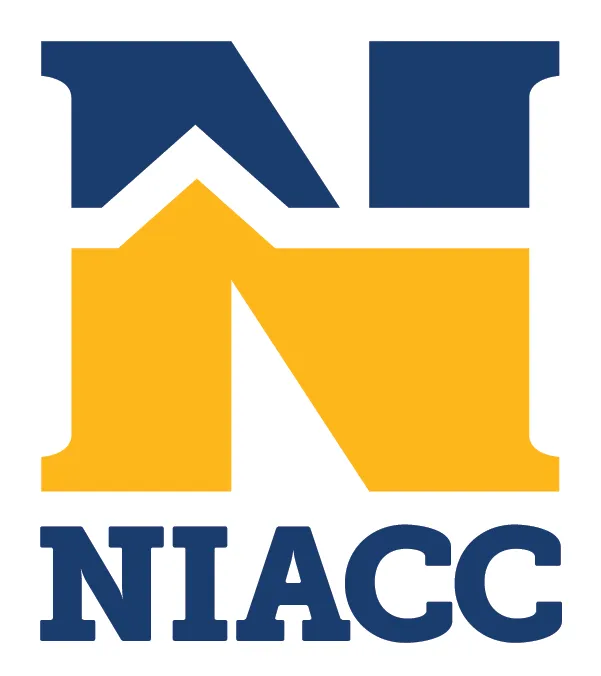Emergency Evacuation
Download Emergency Evacuation PDF
When an emergency such as smoke, fire, toxic spill, or other event requiring evacuation is confirmed, NIACC personnel will contact the Police and/or Fire Department to manage the evacuation process.
NIACC has taken the following preparatory protocols:
- The college has identified all Fire Exits and Storm Shelter Areas throughout the campus.
- Fire Exits have Lighted, overhead EXIT signs and flashing/auditory FIRE alarms.
- Each building contains a building map that identifies Evacuation Routes and Storm Shelters.
- An emergency messaging system is available at NIACC. Make sure you’ve registered to received emergency alerts on your cell phone and through your NIACC email.
It is strongly recommended that persons with disabilities acquire additional alerting devices to draw attention to themselves during an emergency. Cell phones can be an effective tool for contacting emergency personnel.
Depending upon the facility and type of disability, people may have the following evacuation options:
- Exit. Leave the building through any exit door. Make sure you’ve identified accessible door locations ahead of time.
- Elevators. Elevators are never to be used in the event of a fire without explicit authorization by fire or police personnel.
- Evacuation may not be necessary or advisable in all situations. Many stairwells are designed to provide temporary protection from fire or other danger.
- Stairway evacuations of individuals who use wheelchairs may be hazardous to the wheelchair user, rescuers, and others attempting to evacuate and should not be attempted by untrained personnel unless there’s no other alternative.
- If immediate evacuation is necessary, be aware of the following considerations:
- Wheelchairs have moveable parts; some are not designed to withstand stress or lifting.
- Wheelchairs should not be used to descend stairwells, if at all possible.
- Always consult with the person in the chair regarding how best to assist him/her.
- Only offer assistance that is consistent with your capabilities and comfort level, do not attempt to exceed your capabilities.
- Some people have conditions that can be aggravated or triggered if they are moved incorrectly.
- If immediate evacuation is necessary, be aware of the following considerations:
NOTE: If you’re an instructor who has a student who’s unable to use the stairs during an evacuation, please help the student to the top of the stairwell, call 911 to let them know your location, and wait with the student until help arrives.
The dispatcher will alert the fire department to your location so they can immediately assist the student in evacuation.
Personal Emergency Plans for Persons with Disabilities
Emergency Evacuation Request Form
Although the process of developing a Personal Emergency Plan is optional for students and staff, NIACC encourages proactive planning on the part of the entire college community for emergency conditions. Individuals with disabilities may require additional assistance with alerting, evacuating, and sheltering in the event of an emergency.
NIACC offers the opportunity, through a confidential process, to develop a Personal Emergency Plan that could include strategies to implement in the event of an emergency. The request form is available here. This form should be revised each semester to reflect current classrooms, living arrangements, etc.
Once a student submits a Personal Emergency Plan request, the Counselor for Disability Services will notify parties involved. If the student resides in NIACC Student Housing, the Counselor for Disability Services will inform the Director of Student Housing. Together, with the student, they will develop a Personal Emergency Plan that will be kept on file in Disability Services. Only those with a “need to know” have access to it.
Contact Information and Emergency Numbers:
Mason City Police Department
78 South Georgia Avenue
Mason City, IA 50401-3990
641-421-3636
Mason City Fire Department
350 5th St. SW
Mason City, IA 50401-3822
641-421-3640
David Trunkhill
Director of Facilities
Facilities Management, 116
641-422-4350
david.trunkhill@niacc.edu
Jeremy Winters
Director, Student Housing
641-422-4990
jeremy.winters@niacc.edu
